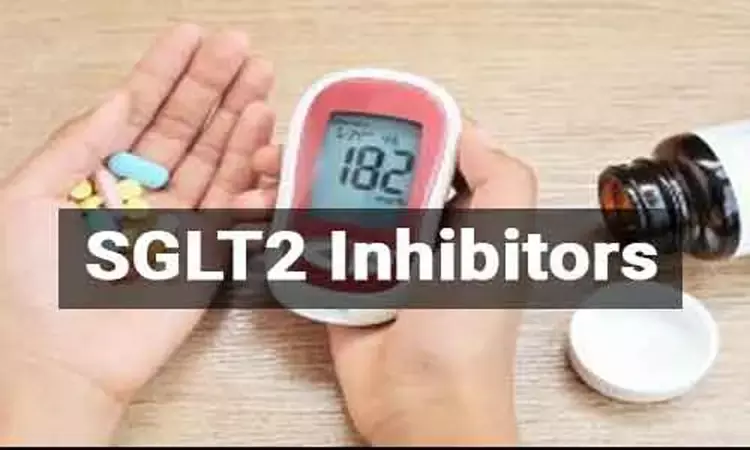- Home
- Medical news & Guidelines
- Anesthesiology
- Cardiology and CTVS
- Critical Care
- Dentistry
- Dermatology
- Diabetes and Endocrinology
- ENT
- Gastroenterology
- Medicine
- Nephrology
- Neurology
- Obstretics-Gynaecology
- Oncology
- Ophthalmology
- Orthopaedics
- Pediatrics-Neonatology
- Psychiatry
- Pulmonology
- Radiology
- Surgery
- Urology
- Laboratory Medicine
- Diet
- Nursing
- Paramedical
- Physiotherapy
- Health news
- Fact Check
- Bone Health Fact Check
- Brain Health Fact Check
- Cancer Related Fact Check
- Child Care Fact Check
- Dental and oral health fact check
- Diabetes and metabolic health fact check
- Diet and Nutrition Fact Check
- Eye and ENT Care Fact Check
- Fitness fact check
- Gut health fact check
- Heart health fact check
- Kidney health fact check
- Medical education fact check
- Men's health fact check
- Respiratory fact check
- Skin and hair care fact check
- Vaccine and Immunization fact check
- Women's health fact check
- AYUSH
- State News
- Andaman and Nicobar Islands
- Andhra Pradesh
- Arunachal Pradesh
- Assam
- Bihar
- Chandigarh
- Chattisgarh
- Dadra and Nagar Haveli
- Daman and Diu
- Delhi
- Goa
- Gujarat
- Haryana
- Himachal Pradesh
- Jammu & Kashmir
- Jharkhand
- Karnataka
- Kerala
- Ladakh
- Lakshadweep
- Madhya Pradesh
- Maharashtra
- Manipur
- Meghalaya
- Mizoram
- Nagaland
- Odisha
- Puducherry
- Punjab
- Rajasthan
- Sikkim
- Tamil Nadu
- Telangana
- Tripura
- Uttar Pradesh
- Uttrakhand
- West Bengal
- Medical Education
- Industry
SGLT2 inhibitors better than sulfonylureas for reducing deaths in type 2 diabetes: JAMA

St Louis, Missouri: The use of SGLT2 inhibitors may reduce the risk of all-cause mortality compared with sulfonylureas in patients with type 2 diabetes receiving metformin therapy, finds a recent study in JAMA Internal Medicine. This reduced risk was independent of cardiovascular disease status, estimated glomerular filtration rate category, and albuminuria status.
"The results provide data from real-world settings that may help guide the choice of antihyperglycemic therapy in type 2 diabetes patients," wrote the authors.
Sodium-glucose cotransporter 2 (SGLT2) inhibitors are a new class of antihyperglycemics that reduces the risk of adverse cardiovascular and kidney events. Studies have also shown SGLT2 inhibitors to be beneficial even in people without diabetes. There is a lack of evidence of the comparative effectiveness of SGLT2 inhibitors verus sulfonylureas—the second most widely used antihyperglycemic class after metformin
Against the above background, Yan Xie, VA St Louis Health Care System, St Louis, Missouri, and colleagues aimed to evaluate the comparative effectiveness of SGLT2 inhibitors and sulfonylureas associated with the risk of all-cause mortality among patients with type 2 diabetes using metformin.
For this purpose, the researchers conducted a cohort study comparing the use of SGLT2 inhibitors vs sulfonylureas in individuals receiving metformin for treatment of type 2 diabetes using data from the US Department of Veterans Affairs. The study enrolled a total of 23 870 people with the new use of SGLT2 inhibitors and 104 423 individuals with new use of sulfonylureas between October 1, 2016, and February 29, 2020.
Key findings of the study include:
- Compared with sulfonylureas, SGLT2 inhibitors were associated with reduced risk of all-cause mortality (hazard ratio [HR], 0.81), yielding an event rate difference of −5.15 deaths per 1000 person-years.
- Compared with sulfonylureas, SGLT2 inhibitors were associated with a reduced risk of death, regardless of cardiovascular disease status, in several categories of estimated glomerular filtration rate (including rates from >90 to ≤30 mL/min/1.73 m2) and in participants with no albuminuria (albumin to creatinine ratio [ACR] ≤30 mg/g), microalbuminuria (ACR >30 to ≤300 mg/g), and macroalbuminuria (ACR >300 mg/g).
- In per-protocol analyses, continued use of SGLT2 inhibitors was associated with a reduced risk of death compared with continued use of sulfonylureas (HR, 0.66; event rate difference, −10.10; −12.97 to −7.24 deaths per 1000 person-years).
- In additional per-protocol analyses, continued use of SGLT2 inhibitors with metformin was associated with a reduced risk of death compared with SGLT2 inhibitor treatment without metformin (HR, 0.70; event rate difference, −7.62; −17.12 to −0.48 deaths per 1000 person-years).
"Our findings show that SGLT2 inhibitor treatment was associated with a reduced risk of all-cause mortality compared with sulfonylureas. The results provide data from a real-world setting that might help guide the choice of antihyperglycemic therapy," the team concluded.
Reference:
The study titled, "Comparative Effectiveness of Sodium-Glucose Cotransporter 2 Inhibitors vs Sulfonylureas in Patients With Type 2 Diabetes," is published in JAMA Internal Medicine.
DOI: https://jamanetwork.com/journals/jamainternalmedicine/fullarticle/2781475
Dr Kamal Kant Kohli-MBBS, DTCD- a chest specialist with more than 30 years of practice and a flair for writing clinical articles, Dr Kamal Kant Kohli joined Medical Dialogues as a Chief Editor of Medical News. Besides writing articles, as an editor, he proofreads and verifies all the medical content published on Medical Dialogues including those coming from journals, studies,medical conferences,guidelines etc. Email: drkohli@medicaldialogues.in. Contact no. 011-43720751


